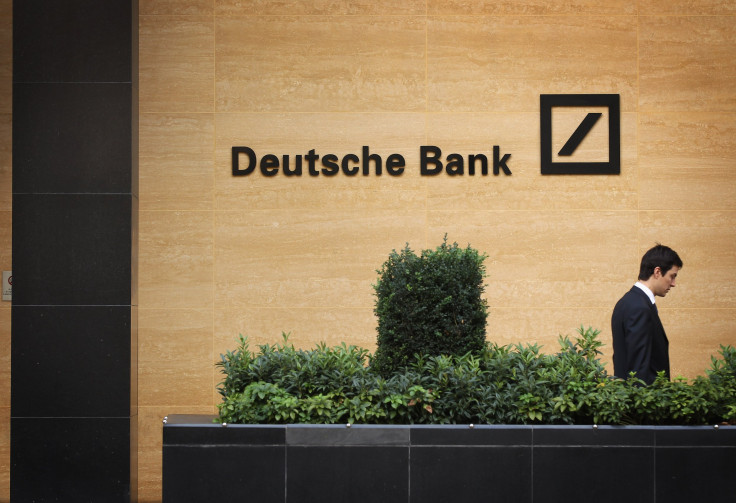What's Wrong With Deutsche Bank? Now, Just About Everything

Just as Deutsche Bank’s stock seemed to rebound after months of decline amid intense regulatory scrutiny, the 146-year old financial institution announced it plans to lay off 1,000 employees in Germany. The move is part of a restructuring effort to reduce its staff by 9,000 worldwide. At the time of the announcement, the bank employed about 100,000 people.
The German bank's stock fell from a high of $13.68 to $13.42 Thursday morning following a rise for several consecutive days, and that was after it had already announced a reduction of 3,000 jobs in Germany in June.
Deutsche may not face German penalty over Russian trades: sources https://t.co/PkdKIrNW1u pic.twitter.com/QXQ90p9r7j
— Reuters (@Reuters) October 6, 2016
Thursday’s announcement followed more positive news for the bank, as Germany’s Federal Financial Supervisory Authority, or BaFin, found no incriminating evidence in a case alleging that Deutsche violated rules related to money laundering in Russia, Reuters reported. In August, American, Russian and German regulators accused the bank of using “mirror trades,” in which clients can move money between countries without the authorities’ knowing — a potential violation of Western sanctions against Russia.
But that’s not the end of Deutsche’s regulatory troubles: Just last month, the bank announced it would fight the U.S. Department of Justice’s demand that it cough up a $14 billion fine for miss-selling mortgage-backed securities—one of the key factors in the collapse of the 2008 housing bubble—prior to the financial crisis.
And in June, BaFin discovered flaws in the Deutsche’s anti-money laundering system, fining the bank 40 million euros ($44 million), according to Reuters.
On Wednesday, the International Monetary Fund (IMF) attempted to calm worries that the Deutsche would require a bailout, or even cause a broader financial crisis.
Deutsche is one of many investment institutions “that are in transition away from dated business models that relied heavily on large scale balance sheets,” IMF Deputy Director of Monetary and Capital Markets Peter Dattels said during a press conference at the organization’s headquarters in Washington D.C. Wednesday.
“Deutsche Bank is a large and interconnected bank and is therefore systemically important, domestically and globally,” Dattels added. “In this context, we are confident the German and European authorities are monitoring the situation and working to ensure that the financial system remains resilient.”
IMF Managing Director Christine Lagarde expressed similar comments Thursday morning, telling Bloomberg TV Deutsche needed to alter its business model and adjust to low interest rates across the globe. She also said she hoped Deutsche would settle with the Justice Department rather than fighting the $14 billion fine.
.@Lagarde: Banks have to look at business models to respond to existing financing conditions. We believe there is determination to do so.
— IMF (@IMFNews) October 6, 2016
“A settlement would certainly be welcome because it would deliver some certainty as to what weight the bank will have to carry, and whether it matches with its provision or not, so the sooner the better,” Lagarde said.
© Copyright IBTimes 2024. All rights reserved.












